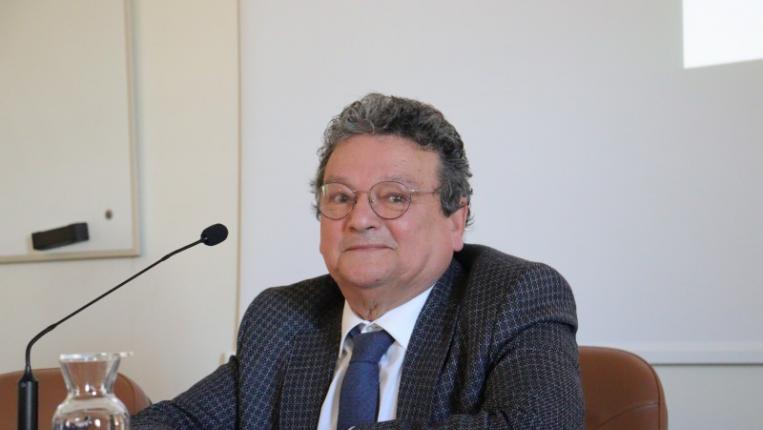Since 25 April 1974, RTP has had 28 presidents, with an average duration in office of 1 year, 10 months and 18 days. The greatest turnover occurred in the first decades, as illustrated by the brief leaderships of João António de Figueiredo (7 days, 1975), José Emílio da Silva (13 days, 1975) and António Monteiro de Lemos (1 month and 21 days, 1992-1993). The longest terms are more recent, with Gonçalo Reis (2015-2021), José Manuel Coelho Ribeiro (1986-1992) and Almerindo Marques (2002-2007). In the same period, there have also been 27 information directors - not counting the mandate that Vítor Gonçalves is now starting - which translates into an average tenure of 1 year, 11 months and 8 days. Similarly, the longest leadership spans occurred after Portugal joined the EEC: José Eduardo Moniz (1986-1994), António José Teixeira (2020-2025) and António Luís Marinho (2004-2008).
During this period, Portugal saw six provisional governments and 25 constitutional governments. During the initial phase of consolidated democracy (1976-2002), executives lasted an average of 1 year, 10 months and 3 days. Since 2002, the average has risen to 2 years, 1 month and 11 days. Democracy has certainly matured, but the longevity of government hasn't evolved that much. But have the changes at the top of RTP kept pace with political changes? Since the Carnation Revolution, 10 of the 28 presidents (35.7 per cent) and 9 of the 27 news directors (33.3 per cent) have been appointed within a year of a new executive taking office. However, it is important to know what happens when there is a change of majority. Since 1976, there have been nine effective party or coalition transitions. In two thirds of the cases (6) a new president was appointed within a year of the executive taking office and in almost half (4) there was also a change in the information directorate.
The statistics show signs of political influence in appointments, but autonomy isn't just played out in senior management. It is revealed in the line-up of news programmes, the distribution of airtime, the framing of topics, the plurality (or lack thereof) of political commentary and so on. In several countries, the public service has been challenged not only for being considered costly or close to political power, but also for maintaining, at certain times, a margin of freedom from the interests of economic groups with agendas. The French case is paradigmatic in this respect.
The French Minister of Culture, Rachida Dati, is facing several charges brought by the courts or revealed by credible journalistic investigations: she has been formally accused of passive corruption and influence peddling in connection with payments of €900,000 from Renault-Nissan BV; she is alleged to have omitted jewellery valued at €420,000 from her assets declaration; she is alleged to have received €300,000 from GDF Suez as an MEP; and she has been criticised for her proximity to the regimes in Azerbaijan and Qatar. On 18 June, on C à vous (France 5), she refused to answer questions from Patrick Cohen and Anne-Élisabeth Lemoine, threatening them with accusations of moral harassment and making personal accusations about alleged bad labour practices in the newsrooms they lead. It is no coincidence that Dati has in the pipeline the merger and subsequent privatisation of the France Télévisions group, in the name of budget rationalisations, a proposal that has provoked strong criticism from journalists, unions and press freedom experts.
Meanwhile, the Bolloré group (CNews, Canal+, Europe 1, Le Journal du Dimanche, Paris Match) has been consolidating its position in the media space by promoting far-right political agendas. The idea that private media are ‘by nature’ more independent is contradicted by frequent cases of editorial interference by shareholders with well-defined ideological or economic interests. The defence of a strong, plural and well-funded public media service, subject to public scrutiny, remains central in an ecosystem increasingly dominated by market logics. In this context, the case of Cyril Hanouna, presenter of the private channel C8 - also owned by Bolloré - is emblematic: the programme Touche pas à mon poste! was sanctioned by the regulator ARCOM with fines of 7.6 million euros (2022-2023) for insults, hate speech and violation of the obligations of pluralism and ethics. In 2024, ARCOM even decided not to renew the channel's terrestrial broadcasting licence, a decision confirmed by the French Council of State (2025).
Cyril Hanouna has since found another private channel to continue his adventures. However, this case illustrates how regulatory authorities with effective powers are essential to protect the democratic public space from certain drifts and abusive practices. Do we have robust and independent mechanisms to respond to similar scenarios? In the Portuguese context, it is legitimate to anticipate that new forms of challenge to the public media service will gain strength in the near future for reasons that are not always just budgetary. What is at stake is who controls access to reliable and pluralised information. An independent public service remains a basic pillar of a robust democracy.
*Professor at the Portuguese Catholic University - Braga






